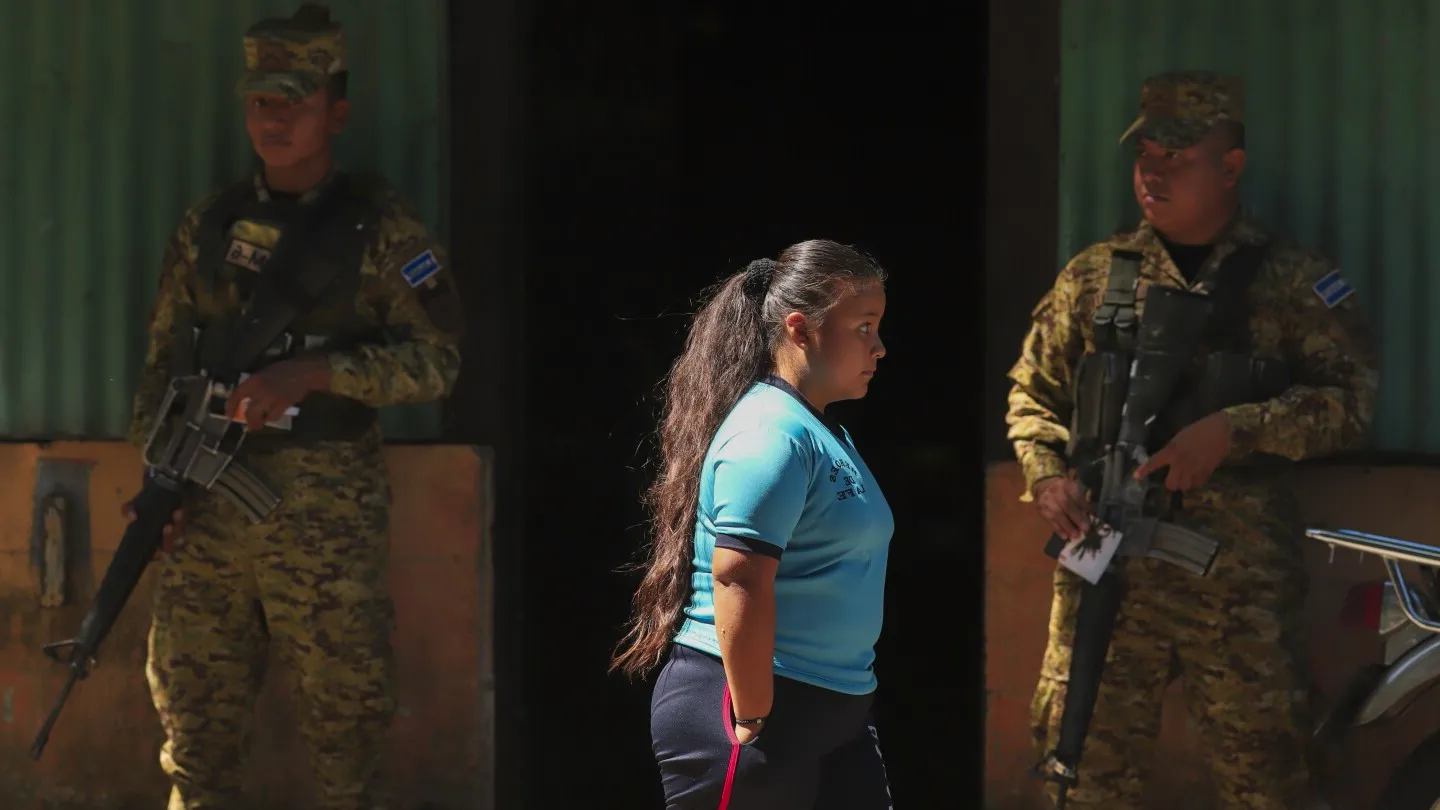Movies News Talk
El Salvador's ARMY Surrounds Neighborhood! Bukele's Controversial Gang War Intensifies!
El Salvador's Gang crackdown: A Controversial Siege in San Marcos
Massive Military Operation Surrounds San Marcos Neighborhood
El Salvador's President Nayib Bukele launched a massive security operation on Monday, October 9, 2024, deploying over 2,000 soldiers and 500 police officers to surround the San Marcos neighborhood on the outskirts of San Salvador. Bukele, in a post on X (formerly Twitter), stated the goal was to eliminate remaining gang members hiding within the densely populated area. He described a security perimeter completely encircling San Marcos, preventing any escapes. This operation employed the use of a large physical barrier – described by defense minister René Francis Merino Monroy as a "military fence."
The San Marcos operation is not an isolated event. Similar large-scale security fences were employed in previous efforts. In March 2024, Bukele ordered a similar barricade in northern El Salvador, targeting a Barrio 18 gang faction. These events showcase a consistent pattern in the government’s actions; further emphasizing the overall political aims which are further discussed later in this article.
Bukele's War on Gangs: A Balancing Act Between Security and Human Rights

Bukele's intense "war on gangs" began after a spike in violence in March 2022. His administration declared a "state of emergency," suspending constitutional rights to arrest over 1% of El Salvador's population. While many praise Bukele for his strong stance and commitment against gang related crime, and its subsequent results – human rights organizations strongly criticize the measures. There is much debate here! Some groups report severe issues in El Salvadorian prison conditions, while others contend that many of those arrested lacked meaningful connections to criminal activities and are actually completely innocent individuals!
This intense campaign did significantly decrease homicides, bolstering Bukele's popularity amongst its own citizens. It remains largely debated to what extent these improvements came as a result of genuine change or whether the government enforced these policies and improvements. Despite claiming victory, Bukele continues to extend the state of emergency (for over two years). This continuing emergency, further enforcing the intensity and importance of this very particular political event, especially with many concerns emerging later on.
San Marcos Under Siege: The Implications of This Major Operation
The San Marcos operation shows a significant turning point in this ongoing conflict. The methods are extreme, creating concerns that this shows yet another increase in political extremism and a consistent crackdown. Even the intense rhetoric; this ongoing declaration of the importance of this continuing struggle with gangs further fuels human rights concerns that may potentially erupt. This also fuels debate on what balance needs to exist. The necessity for intense control and policing vs. protecting individual rights in any human rights based governance needs far more detailed discussions; further suggesting that the international community might demand that El Salvadorian practices be re-evaluated for violations and abuses against the law, and the international expectation around civil and democratic practices, human rights considerations!
Conclusion: A Delicate Balancing Act
El Salvador's gang problem is severe and dangerous, yet it remains extremely crucial for audiences to understand that using increasingly excessive violence and forceful means raises those serious moral and ethical questions concerning just how much a state should sacrifice to maintain its control; what trade-offs and choices have been made! The methods employed may have produced a level of needed societal peace and reduced the numbers in deaths, but Bukele’s approach is risky and needs significant reevaluation.
The international community must seriously weigh this ongoing situation between intense policing efforts to maintain peace and security with the dangers and long-term implications these kinds of intense methods and choices may entail; including abuses of power which would have far more troubling consequences.
- NYT Mini Crossword Answers & Hints! Solve Today's Puzzle With Our Easy Guide!
- Dr. Phil's SHOCKING Trump Defense at MSG Rally! Free Speech, Bullying & Election Controversy EXPLODES!
Related Articles
- NYT Mini Crossword Answers & Hints! Solve Today's Puzzle With Our Easy Guide!
- American Primeval: Netflix's BRUTAL New Western Series - Release Date, Cast & First Look Images!
- Meryl Streep & Martin Short ARE Dating?! Only Murders in the Building Romance Has the Internet in a Frenzy!
- BEST Celebrity Halloween Costumes of 2024! Most Unique & Hilarious Looks You WON'T Believe!
- Red One: Dwayne Johnson & Chris Evans Christmas Movie Will EXPLODE at Box Office! Opening Weekend Prediction!
- DWTS Halloween Nightmares! Dance-Offs, Shocking Elimination & All the Scores! Must-See Recap!
- Only Murders Finale: SHOCKING Killer Revealed! Meryl Streep & Martin Short's SECRET Romance? Must-See Episode Details!
- MrBeast's LUNCHLY RECALL? Mold Scandal ERUPTS! Logan Paul & KSI Respond to the CONTROVERSY!
- Connecticut Fire Gets NYC Firefighter HELP! Massive Hawthorne Fire Response: Heroes in Action!
- Disney Dreamlight Valley's NEW Expansion: Storybook Vale! Characters, Biomes, & Release Date!
- Elon Musk's X Platform SPREADS Election Lies! Experts Warn of IMMINENT Danger Ahead of Election Day!
- Pennsylvania Election 2024: Harris vs. Trump DEAD HEAT! New Poll Reveals SHOCKING Results!
- NYC Halloween Parade & Marathon: Massive NYPD Security Operation! Safety Concerns and Increased Police Presence!
- October Jobs Report SHOCKER! US Job Growth CRASHES Before Election! Economy in Crisis?
- Kamala Harris WRONG on Trump's Abortion Stance? Fact-Check of VP's SHOCKING Election Claims!
- Delaware Bans FIREWORKS for Diwali! Historic Drought Triggers Statewide Burn Ban - Details Inside!
- Ella Langley TOPS Country Airplay Chart! HUGE Milestone + Post Malone's RECORD-BREAKING Feat!
- OHIO RIVER BRIDGE FIRE! I-471 CLOSED! Massive Blaze Causes MAJOR Damage - PHOTOS & VIDEO!
- San Diego Fairmount Fire EMERGENCY! Evacuations Ordered Near SDSU! Brush Fire Update!
- Early Voting 2024: SHOCKING New Numbers! Will Trump or Biden Win? Analysis & Predictions!